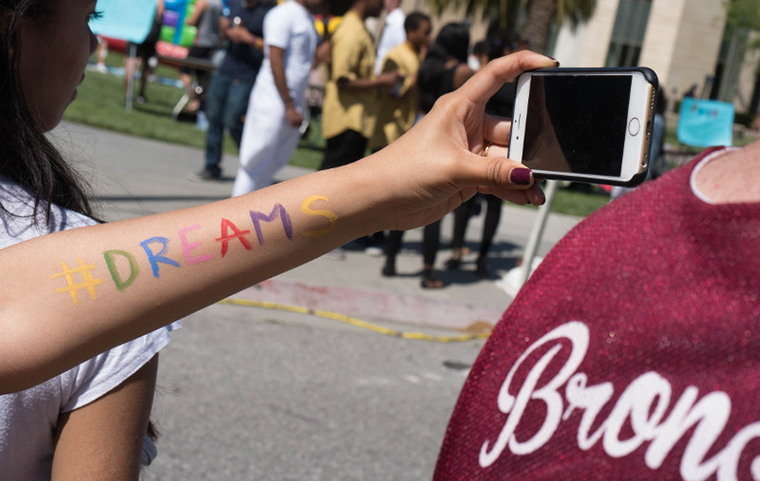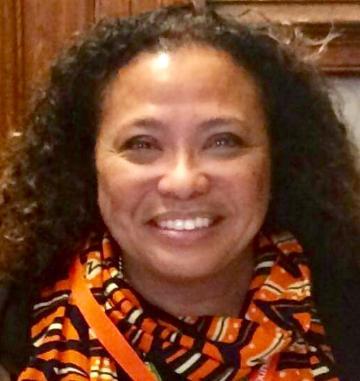
A Greater Awareness
Deepa Arora
Interim Vice Provost for Diversity and Inclusion Margaret Russell maps out her goals for her new role at SCU.
Where did you grow up?
“I grew up in Philadelphia and went to college in New Jersey, so a big part of me will always be an East Coast city kid. You could describe my upbringing as modest, working class. I am the youngest of five children of an African-American father and Japanese immigrant mother. My parents met when my father, an Army sergeant stationed near Tokyo, met my mother in a seamstress shop. It was incredibly hard for them as an interracial couple, both in Japan and back here in the US. With the passage of time, I appreciate more and more how much they struggled. My upbringing was not an easy one. I went to Catholic schools from grades 1-12, and the Sisters were very strict. But, they certainly prepared me well for being a ‘first gen’ university student.”
What led you to go to Law School?
“I majored in history with a concentration in American studies, and have always loved an interdisciplinary approach to American history and politics. I grew up during the so-called Watergate era, and was riveted by President Nixon’s impeachment hearings and eventual resignation. Those interests eventually led me to Stanford Law School and my life in northern California.”

What led to your interest in diversity and inclusion?
“The experience of growing up in a biracial family with an immigrant parent gave me an early and unique sense of the centrality of diversity and inclusion in everyday life. My immediate and extended family continues to grow in very diverse and multicultural ways. In law, my concentration has always been social justice, civil rights, and civil liberties. I have taught constitutional law for over 25 years. In a nutshell, I cherish the values of diversity and inclusion in everything I do.”
What would you like to accomplish as the Interim Associate Provost for Diversity and Inclusion?
“I would like to build on the significant efforts that have already been made. Fortunately, Raymond Plaza, Ph.D, director of the Office of Diversity and Inclusion, has worked tirelessly on this for several years. Professors Aldo Billingslea and Brett Solomon are my predecessors in the Associate Provost position. All three have paved the way, with support from the President and Provost and their staffs.
“As interim associate provost, I chair the Council on Inclusive Excellence, a very talented group of representatives from the staff, faculty, and student communities. We will draw upon the results of a campus climate survey to be conducted in early 2018, as well as the recommendations from this year’s Task Force Report on Diversity and Inclusion, in helping to map the future of diversity and inclusion at Santa Clara. I hope that people will visit our website, for access to more materials, including the Blue-Ribbon Commission Final Report and the Task Force Report on Diversity and Inclusion, which are located under the tab ‘Initiatives and Reports.’
“In addition, a significant responsibility of my position is to encourage and assist in the recruitment and retention of diverse faculties in every department and school of the university. That’s a very specific objective of this position. This academic year, we will have over 20 searches for new faculty in various departments. This year is a huge opportunity to grow a diverse faculty and witness the evolution of a new cohort of diverse professionals for our students.
“Santa Clara University is also a part of a Jesuit Post Doctoral Diversity Program Consortium that is designed to support postdoctoral fellows: recent Ph.D.s and MFAs who spend two to three years after their terminal degrees at one of the 28 American Jesuit Colleges and Universities (AJCU) consortium campuses. This is a way of growing the next generation of scholars at Santa Clara or at another Jesuit university. The consortium can ensure that the postdoctoral fellow is matched with a suitable campus mentor and that they will also have a better chance for their skills to be matched with a tenure-track opening across the consortium, not just on their home campus.”
As a constitutional law professor and scholar, what are you particularly sensitive to in this role, and will help accomplish from your unique perspective?
“I am inspired by our constitutional history of protections for equality and civil liberties. What we are seeing now in the Trump era is the rise of hate groups and violence. Important questions emerge: for example, at what point does the expression of hate actually erode the equality of people in this country? You cannot put the right to free speech in one pocket and the right to equality in another pocket. There are going to be situations in which you have to recognize and balance the competing interests. On our campus, we have had incidents of hate speech and vandalism, and we have to deal with them in a way that recognizes how they damage the whole community.”
What will success in this role look like for you?
“More diverse faculty, a greater awareness of and sensitivity in the Santa Clara University community to the role of privilege, and the importance of paying attention to voices of marginalized groups. I think Santa Clara already has a strong consciousness of the critical importance of diversity and inclusion in these perilous times. I would like to expand and deepen that awareness, and implement strategies for long-term change.”